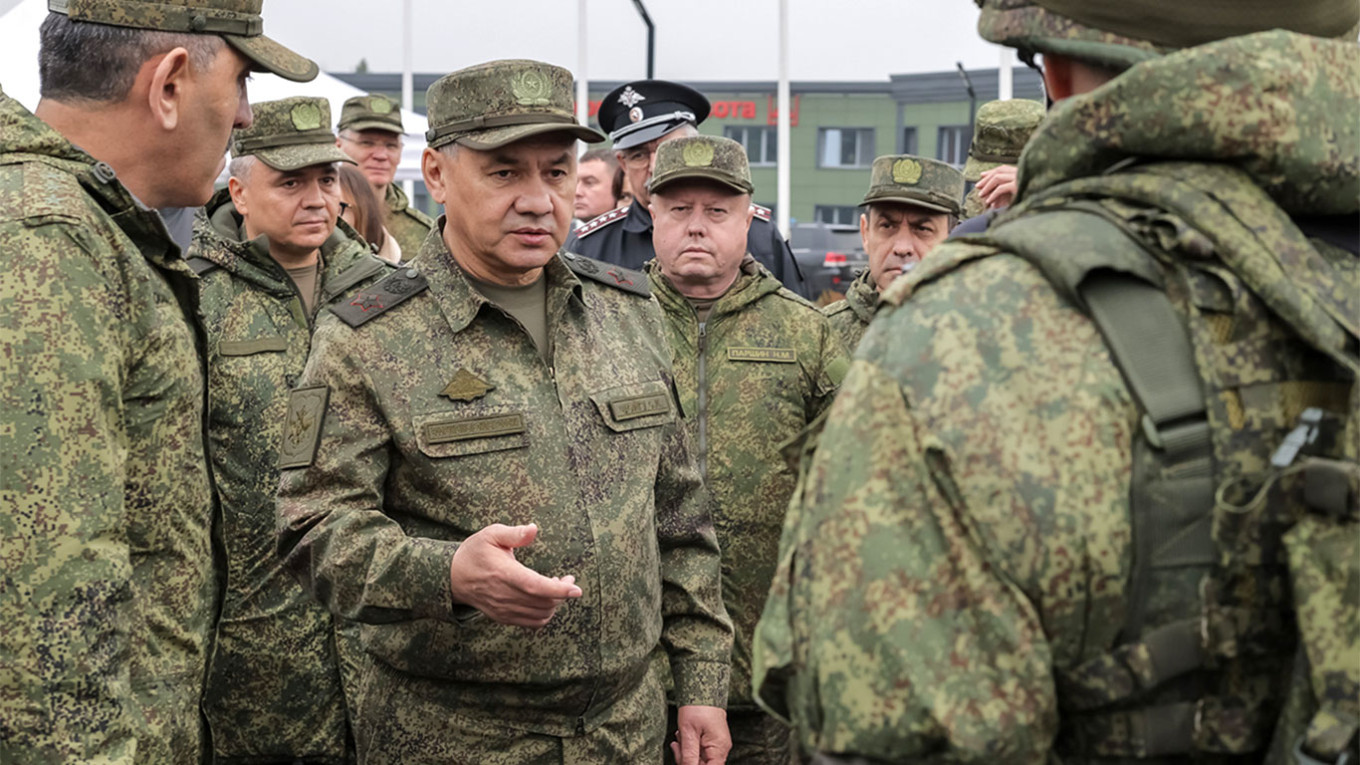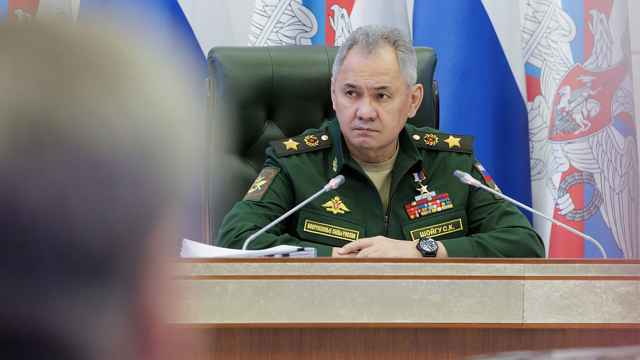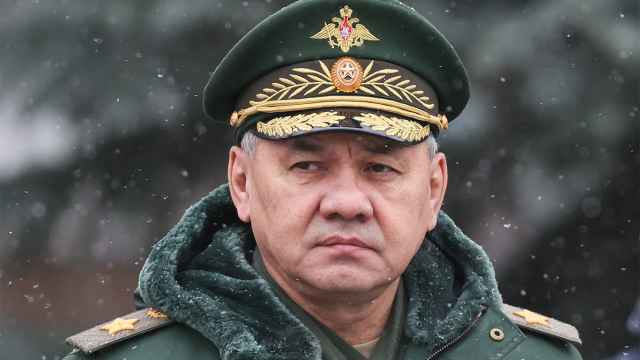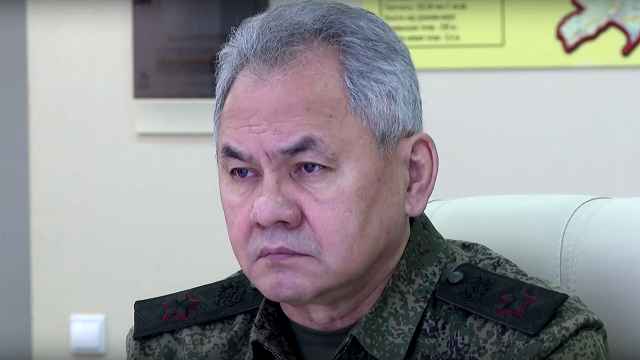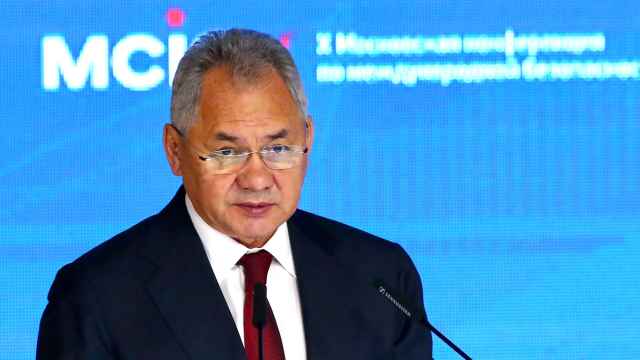The Russian military should deploy next-generation weapons in its campaign in Ukraine, Defense Minister Sergei Shoigu said Wednesday.
“We need to continue upgrading and creating advanced systems with their subsequent application in the special military operation,” Shoigu said at a ministerial board meeting.
Shoigu did not specify which types of innovative weapons systems he was referring to or whether this marked a strategic shift in Russia’s military campaign in Ukraine.
But his remarks follow months of battlefield setbacks that forced Russian troops to withdraw from territories it held in at least three Ukrainian regions.
He listed high-precision long-range weapons, drones and counter-battery warfare systems as key factors for “effectively defeating the enemy.”
“Missile forces and artillery play a significant role in this,” Shoigu said.
“Today we will discuss further steps to build up the combat capabilities of the missile forces and artillery, taking into account the experience gained.”
Russia’s Defense Ministry will focus on building nuclear weapons infrastructure in 2023, Shoigu said at the board meeting.
Russian President Vladimir Putin has repeatedly hinted at Moscow’s nuclear capabilities as his country’s nine-month invasion of Ukraine has struggled to achieve lasting successes.
Shoigu added that 300,000 reservists and volunteers have passed through more than 100 Russian and Belarusian training camps in the two months since Putin ordered a “partial” mobilization.
Funding for state defense orders is expected to increase by 150% in 2023 to ensure the Armed Forces are provided with consistent arms and equipment supplies, he added.
A Message from The Moscow Times:
Dear readers,
We are facing unprecedented challenges. Russia's Prosecutor General's Office has designated The Moscow Times as an "undesirable" organization, criminalizing our work and putting our staff at risk of prosecution. This follows our earlier unjust labeling as a "foreign agent."
These actions are direct attempts to silence independent journalism in Russia. The authorities claim our work "discredits the decisions of the Russian leadership." We see things differently: we strive to provide accurate, unbiased reporting on Russia.
We, the journalists of The Moscow Times, refuse to be silenced. But to continue our work, we need your help.
Your support, no matter how small, makes a world of difference. If you can, please support us monthly starting from just $2. It's quick to set up, and every contribution makes a significant impact.
By supporting The Moscow Times, you're defending open, independent journalism in the face of repression. Thank you for standing with us.
Remind me later.


